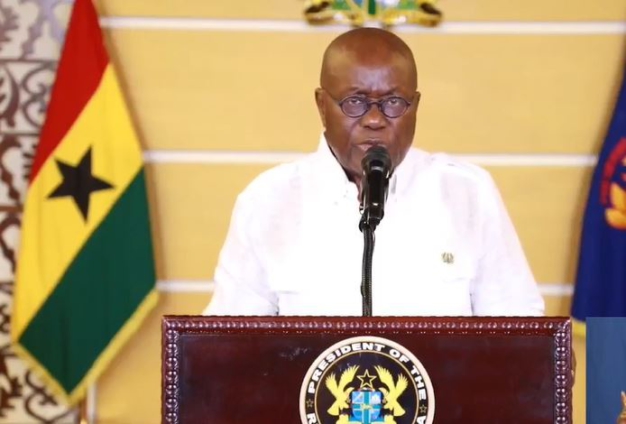President Nana Addo Dankwa Akufo-Addo has urged the Electoral Commission (EC) to strive to discharge its mandate effectively, especially in the conduct of elections.
“We, in Ghana, must continue to urge the EC to work to ensure that all stakeholders in the electoral process, that is the citizenry, civil society and political parties, do not have lingering questions about the legitimacy of an election,” he said.
This is because the strength of any democracy is very much determined by the credibility of its electoral process and respect for the will of the people.
President Akufo-Addo, in an address to the nation to mark the 30th anniversary of Ghana’s Fourth Republic, said “we cannot overlook the fact that instability has followed disputed elections in many parts of the African continent.”
Ghana, considered a beacon of democracy and stability in Africa, has overseen eight presidential elections under the Fourth Republican Constitution, with five presidential transitions, and three peaceful transfers of power through the ballot box from one party to another.
The President attributed the feat to the respect for the principles of democratic accountability, human rights and the rule of law.
“We have every right to be proud of this, and the celebration of the 30th anniversary of the Fourth Republic should inspire us, even further, to hold on to this status,” he stated.
Ghana, the first sub-Saharan African country to have gained independence from British colonial rule in 1957, continues to be a shining example to other countries on the continent when it comes to upholding the tenets of democratic rule and dispensation.
Having its constitutional rule under the First, Second and Third Republics curtailed by military interventions, the country has since 1992, after ushering in the Fourth Republican Constitution, demonstrated a tenacity of purpose regarding the advancement of the rule of law and democratic governance.
That development, according to the President, had “inspired the longest period of stable constitutional governance in our history, with a consensus emerging strongly that the democratic form of governance is preferable, and the benefits are showing”.
President Akufo-Addo indicated that, in spite of the political gains made, the country ought to remain focused and work assiduously to protect its democratic credentials.
“By all accounts, we have come a long way, and we should not take it for granted that everybody in Ghana has accepted democracy as the preferred mode of governance.
“There are those who would rather have authoritarian rule, because they claim our country is underdeveloped and democracy is cumbersome, and we need to get things done in a hurry.
“We still have some work to do to convince such people that we are all safer under democracies,” the President said.
Latest Stories
-
Engr. Kwame Adu-Mante celebrates professional milestone with IET Ghana
11 minutes -
Elizabeth Amoaa’s quest to empower women, transform lives and raise voices
4 hours -
Gauff beats Sabalenka to win French Open title
4 hours -
Deputy Finance Minister urges diasporans to continue sending remittances despite cedi appreciation
4 hours -
Asante Mamponghene’s burial rites attract thousands of mourners
5 hours -
“The job was waiting for me”: MTN Ghana CFO shares journey into telecoms
5 hours -
Frema Foundation Launches ‘Dignity in Bloom’ initiative to tackle period poverty in Ashanti Region
6 hours -
Mayor of Accra calls for renewed commitment to climate action as city commemorates June 3 disaster
6 hours -
Declaration of assets: Special Prosecutor should lead call for asset publication – Dafeamekpor
6 hours -
Empower360 completes third training session for 30 young women under Ghana Grows Program
7 hours -
Sudan: A new gov’t amid escalating military-political conflicts and a deepening humanitarian crisis
7 hours -
National Vaccine Institute makes impressive strides, activate measures for drug production
7 hours -
Housing Ministry signs MoU for water exploration in Ghana
7 hours -
Tree for Life initiative takes off
8 hours -
FDA destroys counterfeit pharmaceutical products worth GH₵42m
8 hours

